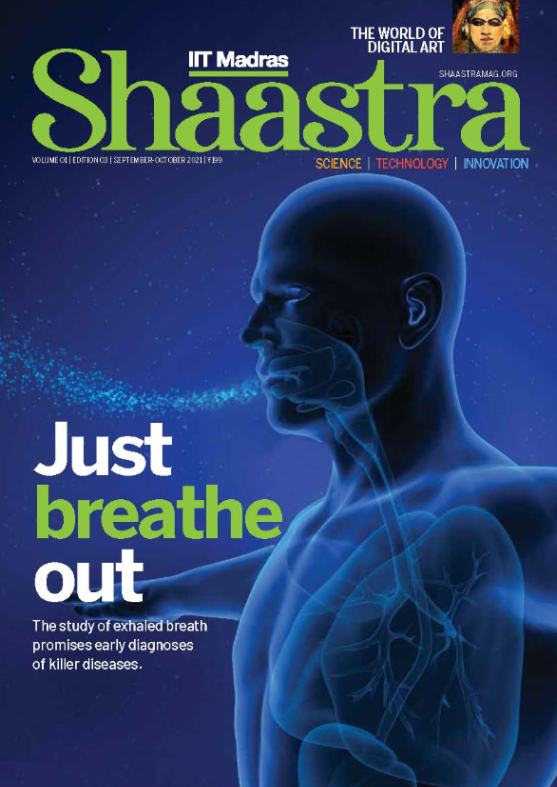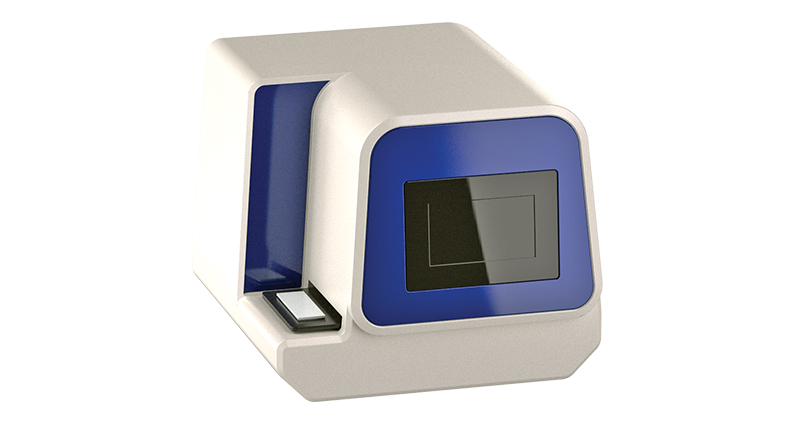Tailor-made treatment
-
- from Shaastra :: vol 01 issue 02 :: Mar - Apr 2022

Can genomics-driven diagnostic solutions help treat infections more effectively and save lives? A start-up holds out a promise.
Doctors at a Bengaluru hospital treating a 40-year-old woman with pneumonia were in a bind. The patient had stopped responding to antibiotics. A battery of tests and several crucial days later, the doctors found that she was suffering from a fungal infection.
But here was the problem: time was running out, and among the estimated 1.5-5 million fungal species on planet Earth, hundreds caused disease in humans (bit.ly/3BuF6AE). What was the precise antifungal medicine that could be prescribed for her?
"The treatment, which up to this point was a hit-and-miss situation, needed to be more precise because... antifungal medications can be very toxic," says Dr Prasanna M., head of the department of cardiothoracic and vascular surgery, Sri Jayadeva Institute of Cardiovascular Sciences and Research, Bengaluru.
That was when Dr Prasanna, who was among those treating the patient, turned to Haystack Analytics, a start-up that specialised in genomics-driven diagnostics.
The patient's biological sample was sent to the company; the presence of cryptococcus fungus was identified in the sample and medication targeting it was prescribed. Soon, she started responding to the treatment.
Zeroing in on what caused the infection was like finding the proverbial needle in the haystack - which explained the name of the start-up, incubated at IIT Bombay's Society for Innovation and Entrepreneurship. Haystack Analytics has developed a genomics-driven diagnostic solution that can help treat infections more effectively by narrowing down the correct course of antibiotics to be administered to a patient, on a case-by-case-basis.
Typically, when patients show symptoms of an infection, they are asked to undergo tests. High fever and chills, for instance, may indicate the presence of a protozoan such as Plasmodium that causes malaria, or the virus that leads to dengue or different kinds of bacteria.
For complex diseases and critical patients, this method of identifying infections can be fatal. Delayed treatment may lead to sepsis, a life-threatening organ dysfunction response to infections. In 2020, a Lancet report said India had the second-highest sepsis death rate in South-East Asia.
That is why determining the correct course of antibiotic is of paramount importance in treating complex infections. But unnecessary prescriptions and lack of awareness have resulted in superbugs resistant to all known types of drugs, points out Dr Amandeep Aggarwal, physician and professor at Prof R.D. Aggarwal Memorial Hospital, Sangrur, Punjab.
A case in point is tuberculosis (TB). About 25% of global TB cases occur in India, which has for several years been witnessing the rise of drug-resistant TB. The first national Anti-TB Drug Resistance Survey published in 2018 indicated that 28% of Indian TB patients were resistant to at least one TB drug. Over the course of the disease that mostly takes a year to be cured, a TB patient is prescribed at least three or four antibiotics.
PAST ISSUES - Free to Read


Have a
story idea?
Tell us.
Do you have a recent research paper or an idea for a science/technology-themed article that you'd like to tell us about?
GET IN TOUCH














